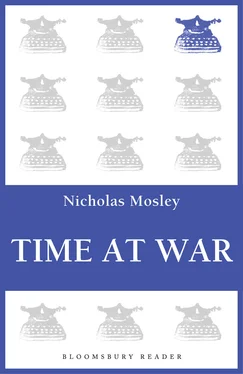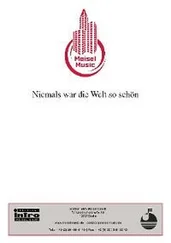I had a letter from Mervyn –
It is fortunate that there is a brandy allocation in the ward as I really had to call for it after reading your demoniac denunciation of Resurrection and your relegation of it to the futile and obvious. I have certainly got over my first rapture on its account, but I really do regard it as frightfully interesting account of the working of God (or what one pleases to put in place of that word) on a man’s mind. It is certainly not original, as you say, but it does describe how a wrongful act worries the mind until at last you feel you have to do something to make up for it. As I understand them, Tolstoy and Dostoevsky regard this as the direct influence of God. I think (with respect) that you miss the point of the last chapter on the Sermon on the Mount. That is added as a personal reflection of the author and is not really concerned with the story at all. It was his last book and I feel he could not quite confine himself to a dissection of the mind of le bon Nekhlyudov but kept breaking into his own theological thoughts.
Really of course why we disagree is as plain to you as it is to me. You can look at the efforts of a man to convince of Christianity in a detached fashion and can be critical both of Christianity and his ways. I, on the other hand, am so desperately anxious to be convinced of Christianity’s truth that I am unable to look with that critical Mosley eye. So I suppose you will call me a bigoted old puritan and smile at your own open-mindedness — with satisfaction of course.
There is just one other thing you say that I must comment on, to disagree again I am afraid. You say men will not follow the Sermon on the Mount until they are sane and merciful, and when they are that it does not matter what sermon (creed) they punch up. Apart from the fact that the second part of your conclusion implicitly denies that Jesus is of God, I reckon that the first conclusion is wrong because chaps will become sane and merciful by practising the Sermon and not, as you say, will practise the Sermon when they are S. and M. The Sermon is the means pointed out to men whereby they can better the world; and this means will end in folks being good and kind, or sane and merciful.
Then there came a day in the New Year when we were in the mountains again — somewhere close to Monte Spaduro, I think — and the weather was still fine and there was no sign of Germans; and I was standing beside my trench in the sunlight and I saw our commanding officer, Bela Bredin, and his adjutant coming along a path up the hill; and they were moving in a stately manner like a small religious procession and smiling; and I thought — So that is all right. And then Bala came up to me and said that for the battle of Casa Spinello I had been awarded the Military Cross; and so had Mervyn; and Desmond Fay had got a bar to the MC he already had; and Corporal Tomkinson had got a Military Medal and Corporal McClarnon had been Mentioned in Despatches. And so what I had not exactly hoped for nor expected but had felt I needed, this had happened; and perhaps I would not have to feel cynical again.
Mervyn wrote –
I was vastly pleased to get your letter and to read that we have both been begonged and Desmond has been bebarred. My salutations to you (and D.) and thanks for yours. I will not go on with any more mutual admiration except to say that I reckon we are all mighty fine fellows!
I knew yours was coming of course because the CO told me in a letter. Your mighty charge was terrific to see.
I wrote to my sister –
It’s the full ridicule, the ultimate absurdity, but there it is — a slender little purple and white ribbon stitched upon my heaving bosom, and me in the full enjoyment of outrageous false modesty.
The MC will help, yes, for it will give authority to the anti-war, anti-patriotic preaching which I intend to deliver to one and all after the war. Even in this so-called universal war there are so very few people who have seen anything of the real fighting, that it is essential for these few to bellow their views even if it means discomforting others. I hope you won’t find me too soap-boxish and bitter.
To my father I wrote –
It is the young Siegfried after all.
The superficial aspect of elation did not last long. We were soon back at the place we had so disliked a month or so ago — with the race to the bridge across the stream. More people were now saying they could not go on.
I had one man in my platoon — an ex-jailbird from Belfast — who was known as a troublemaker; in army jargon a barrack-room lawyer. I made him my batman/ runner because I thought he would be less trouble under my eye than away from it. He was also an invigorating ‘character’. Once, when we were in our perilous position by the bridge, I ordered him to take a message back to headquarters and he refused. I said, ‘Obey my order or I shall shoot you!’ He said, ‘Then shoot me sir!’ and tore open the front of his battledress. I said, ‘Oh all right!’
I arranged a new nook for myself on the first floor of a hayloft; it was exposed to the shelling, but away from the attention of rats. I began to fantasise about how one might get out of this futile situation by a discreet self-inflicted accident: would this be more or less reprehensible now that I had got an MC? I imagined I might fall from my hayloft on to the concrete floor below with one leg tucked under the other in a yoga position: might this not give me a not too-badly broken leg which would get me back to hospital? But after a time luck was once more with me. I awoke one morning shivering and sweating with something other than fear; the Medical Officer confirmed I had a high temperature and diagnosed malaria. So off I went in an ambulance, bumping painfully over potholed roads, but how happy to be on a magical mystery tour again to — where? — Florence? Rome? Even Naples?
I wrote to my sister from Florence –
Jan 13th. I have malaria, or at least I am told I have by the learned doctors who prod my stomach. I maintain it is jaundice, and contest them every inch of the way, but they continue to pump me with quinine until I am stone deaf and sick every three minutes. I have not even the consolation of being unexpectedly out of the line — for just before I left had been offered a fearfully smart job for 2 months at the Div Training School, where I would have been a Captain and reasonably comfortable.
Jan 14th. I have triumphed over the forces of science. It is jaundice, which apparently is treated far more seriously, and I am to be evacuated back, and the further back the happier I shall be. I don’t know if I shall quite make Naples, but I should drift as far as Rome.
But I did go all the way to Naples, and then on to a convalescent home in Sorrento, which as it happened was next door to the hotel in which I had stayed with my father and sister and stepmother in 1936. In hospital and on my journeys down I had been thinking — If ever in later life I come to write about all this I must try to find a style in which to express the contradictions of war — the coincidence of luck and endurance; of farce and fear; of anarchy and meaning.
From Sorrento I wrote my sister a long letter in which I tried to say what I thought I had learned from war. The direction of my arrogance had somewhat changed, but did not seem to be done away with. I wrote –
I went into this war with certain pompous opinions about my virtues and capabilities but amongst them were absolutely no pretensions that I would make a good soldier. I thought that all business-minded men would be 100 times better at organisation than myself, and I thought that all the earnest hearties who seriously believed in the righteousness of this war would be 100 times more brave. After twelve months in Italy I realised that I was wrong: I did not underestimate my own abilities; I overestimated almost everyone else’s. And this startles me considerably; for I, as you know, consider this war a blasphemous stupidity, and yet in a spirit of unwilling desperation I have put more into the winning of it than most of those who say they consider it a holy crusade against the powers of the Devil.
Читать дальше












